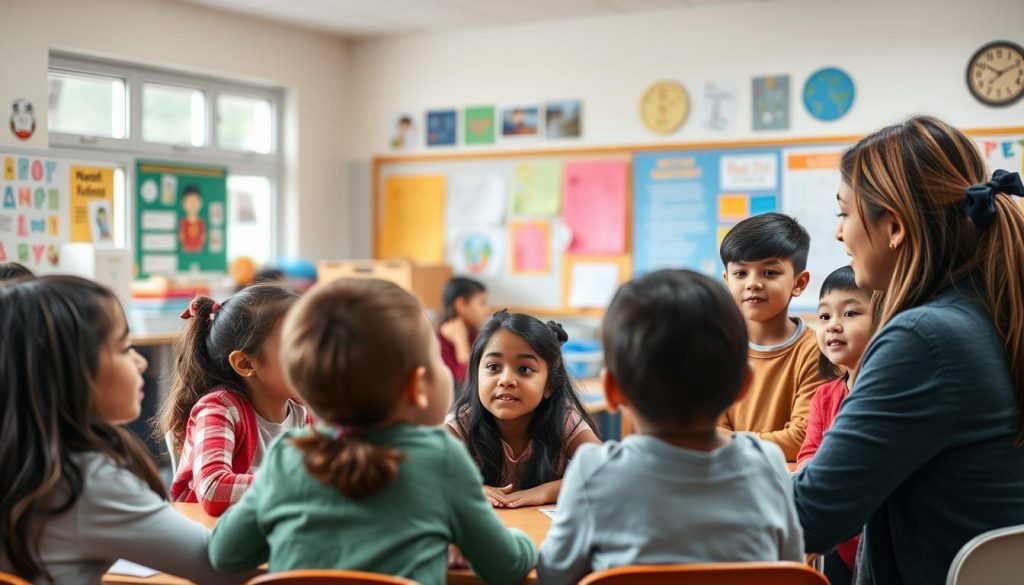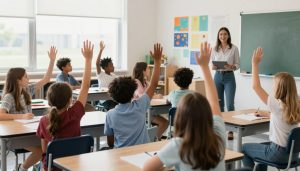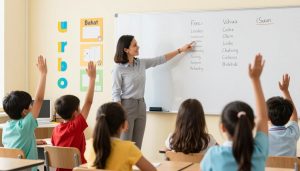Why Authentic Relationships Matter in Education
When we talk about authentic relationships in the classroom, we’re referring to connections built on trust, mutual respect, and genuine care. Research shows that students who feel connected to their teachers are more likely to participate in class, take academic risks, and persist through challenges. These relationships aren’t just nice to have—they’re fundamental to effective teaching and learning.
Developing teacher skills in relationship-building pays dividends across all aspects of education. Students in classrooms with strong teacher-student relationships show improved academic performance, better attendance, fewer behavioral issues, and stronger social-emotional development. For teachers, these connections lead to greater job satisfaction, reduced burnout, and a more positive classroom environment.
“The quality of teacher-student relationships is the keystone of effective teaching. When these relationships are authentic, everything else in education becomes easier.”
Building authentic relationships doesn’t mean becoming friends with your students or abandoning professional boundaries. Rather, it means creating a classroom environment where students feel seen, heard, and valued as individuals. It’s about developing teacher skills that allow you to connect with students on a human level while maintaining appropriate professional relationships.
Ready to Transform Your Classroom Relationships?
Discover proven strategies for connecting with students in meaningful ways that enhance learning and classroom management.
Foundations of Authentic Relationships with Students
Building authentic relationships begins with understanding the core elements that make connections meaningful. These foundational teacher skills create the bedrock upon which strong classroom relationships can flourish.
Trust and Consistency
Trust forms the foundation of authentic relationships. Students need to know they can count on you to be fair, consistent, and reliable. This means following through on promises, maintaining clear expectations, and being emotionally consistent. When students trust you, they’re more willing to take risks, ask questions, and engage fully in learning.
Developing teacher skills in consistency means showing up as the same person day after day. Students quickly notice when teachers say one thing but do another, or when rules apply differently to different students. Building trust takes time, but it can be damaged in an instant through inconsistent behavior.
Genuine Interest and Curiosity
Authentic relationships thrive when teachers demonstrate genuine interest in their students’ lives, thoughts, and experiences. This goes beyond surface-level conversations about weekend activities. It means asking thoughtful questions, remembering details students share, and showing curiosity about their perspectives.
Effective teacher skills include the ability to listen actively and respond with authentic interest. Students can tell the difference between a teacher who’s going through the motions and one who genuinely cares about what they have to say. This authentic curiosity communicates to students that they matter as individuals, not just as learners in your classroom.
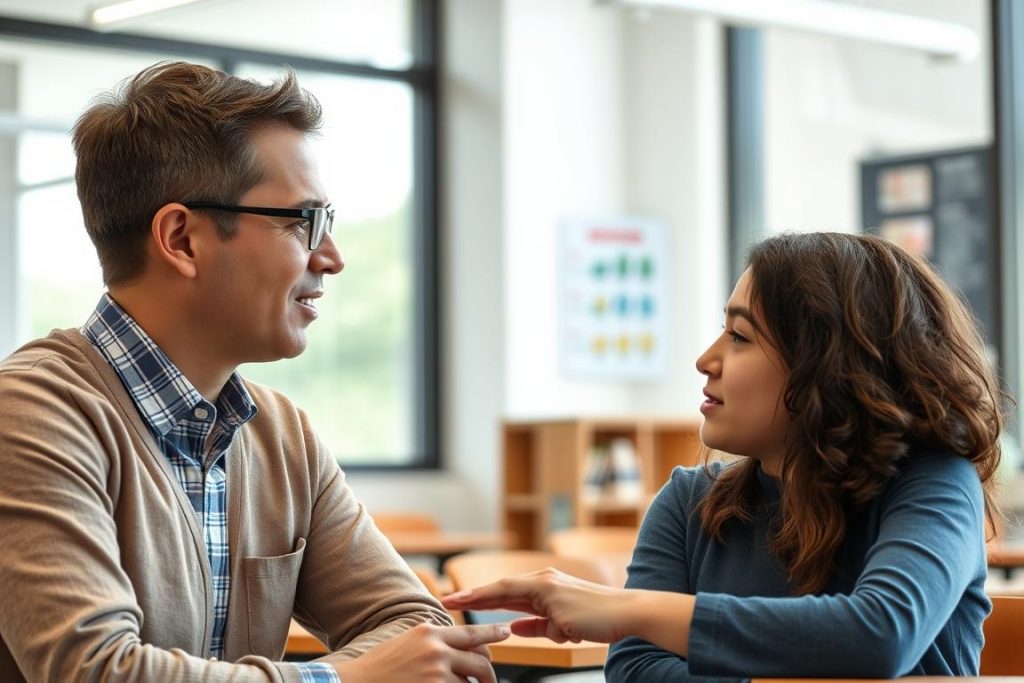
Vulnerability and Authenticity
Perhaps counterintuitively, showing appropriate vulnerability is one of the most powerful teacher skills for building authentic relationships. When you’re willing to admit mistakes, share relevant personal stories, or acknowledge when you don’t know something, you model authenticity for your students.
This doesn’t mean oversharing personal information or abandoning professional boundaries. Rather, it means being human and real with your students. When they see you as a three-dimensional person with strengths and weaknesses, they’re more likely to feel comfortable being themselves in your classroom.
“Students don’t expect teachers to be perfect. They expect teachers to be real. Authenticity creates the space for genuine connection.”
These foundational elements—trust, genuine interest, and appropriate vulnerability—create the conditions for authentic relationships to develop naturally over time. By focusing on these core teacher skills, you lay the groundwork for meaningful connections with all your students.
Practical Strategies for Building Authentic Relationships
Knowing the importance of authentic relationships is one thing; knowing how to build them is another. Let’s explore practical teacher skills and strategies you can implement immediately to strengthen your connections with students.
Start with Names and Greetings
Learning and correctly pronouncing each student’s name is a fundamental teacher skill that communicates respect. Take the time to learn names quickly, ask students how they prefer to be addressed, and use their names frequently in positive contexts.
Greeting students individually at the door each day creates moments for brief but meaningful connection. A personalized greeting—”Good morning, Jamal, I like your science project idea”—takes just seconds but shows students you see them as individuals. These small moments accumulate to build authentic relationships over time.
Create Sharing Opportunities
Build regular opportunities for students to share about themselves into your classroom routine. Morning meetings, closing circles, or quick check-ins provide structured times for students to express thoughts and feelings. These practices develop teacher skills in facilitating meaningful conversation while giving students practice in self-expression.
Consider implementing activities like “rose and thorn” (sharing one good thing and one challenge) or “weekend highlights” that invite students to share appropriate personal experiences. When you participate authentically in these activities yourself, you model the vulnerability that strengthens relationships.
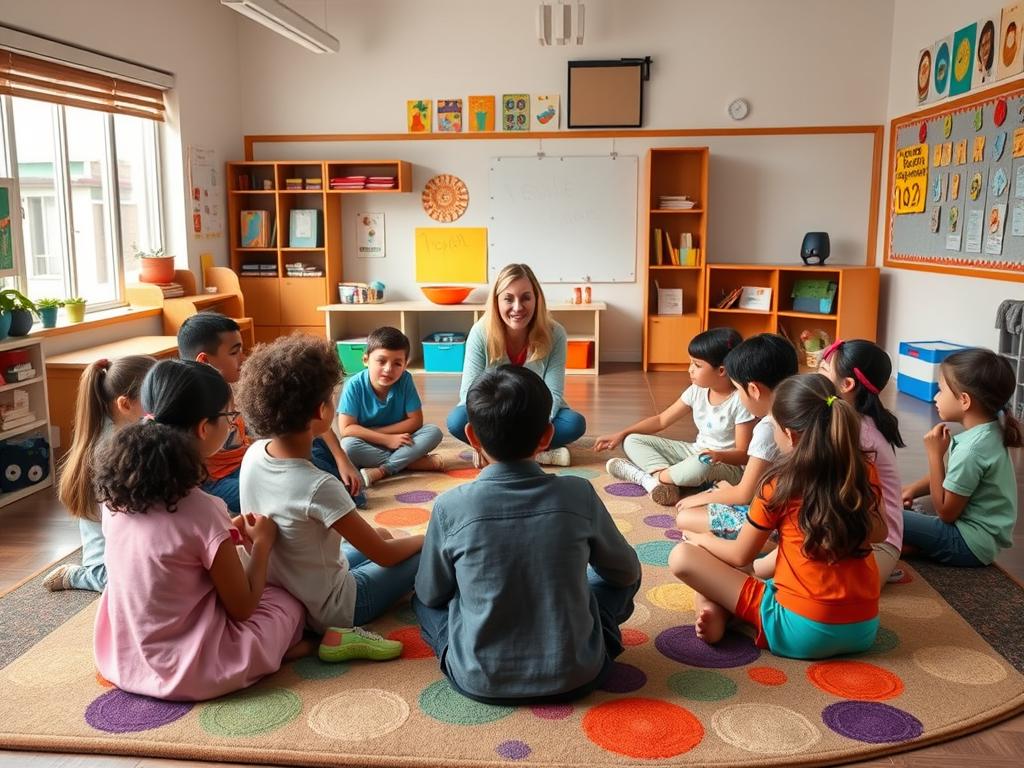
Use Interest Inventories and Surveys
Systematic information-gathering about student interests, preferences, and experiences helps you develop teacher skills in personalization. Start the year with an interest inventory asking about hobbies, favorite subjects, learning preferences, and goals. Revisit and update this information throughout the year as students grow and change.
Use what you learn to make authentic connections to curriculum, create relevant examples, or simply to have conversation starters with individual students. When a student sees you remembered they love basketball or are learning to play guitar, it strengthens your authentic relationship.
Practice Active Listening
Few teacher skills are more important for building authentic relationships than active listening. When students speak, give them your full attention. Make eye contact, turn toward them, and avoid interrupting. Reflect back what you hear to confirm understanding: “So you’re saying you felt frustrated when your group wouldn’t listen to your ideas?”
Active listening communicates that you value students’ thoughts and perspectives. It’s particularly powerful during conflicts or challenging moments, when students most need to feel heard and understood.
Notice and Acknowledge
Developing teacher skills in observation allows you to notice and comment on student growth, effort, and positive behaviors. Specific, authentic acknowledgment—”I noticed how you persisted with that math problem even when it was difficult”—is far more meaningful than generic praise.
Look for opportunities to acknowledge students’ interests, contributions, and growth. These small moments of recognition help students feel seen and valued, strengthening your authentic relationships.
Enhance Your Relationship-Building Skills
Learn research-based strategies for connecting with even your most challenging students. Our professional development courses help you develop the teacher skills needed for authentic relationships.
Navigating Challenges in Building Authentic Relationships
Even with strong teacher skills and the best intentions, building authentic relationships isn’t always straightforward. Let’s explore common challenges and strategies for addressing them.
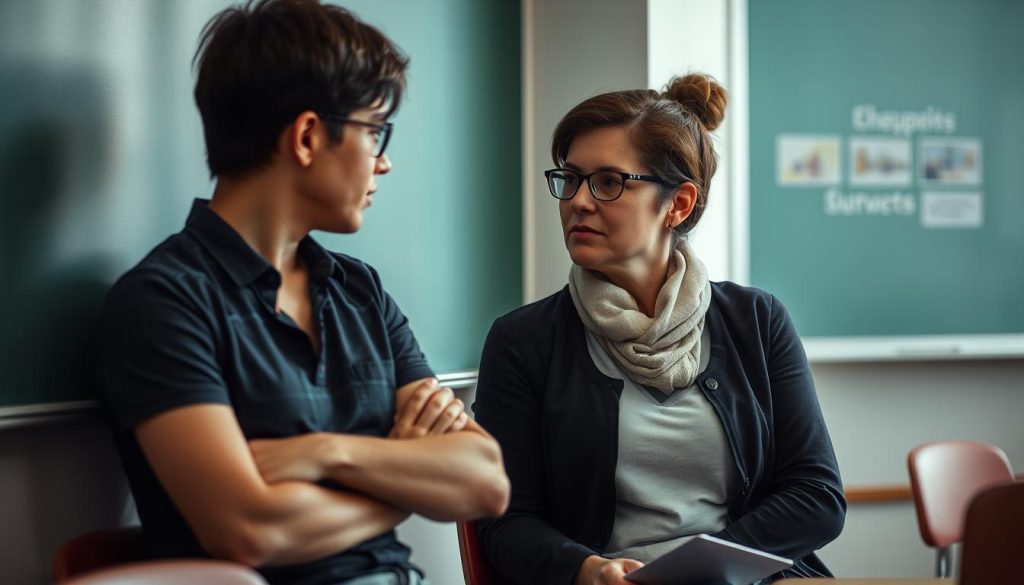
Connecting with Reluctant Students
Some students may be hesitant to form authentic relationships due to past negative experiences with adults or teachers. For these students, building trust takes additional time and patience. Developing teacher skills in persistence and unconditional positive regard is essential.
Start with small, consistent interactions that demonstrate reliability. Respect students’ boundaries while continuing to offer opportunities for connection. Sometimes the students who seem to push you away the most are those who most need authentic relationships with caring adults.
“The students who challenge us the most are often those who need our connection the most. Persistence in building authentic relationships with these students can be transformative.”
Balancing Relationships with Boundaries
Authentic relationships require appropriate professional boundaries. Finding this balance is a critical teacher skill. You can be warm, caring, and genuinely interested in students’ lives while maintaining the authority and structure students need.
Clear boundaries actually support authentic relationships by creating safety and predictability. Students need to know you’re their teacher, not their friend, while still feeling your genuine care and interest.
Time Constraints and Large Class Sizes
Limited time and large numbers of students can make building individual relationships challenging. Developing efficient teacher skills for connection becomes essential. Consider strategies like:
- Using a rotating schedule to ensure you have brief individual check-ins with each student over time
- Implementing partner or small group activities that allow you to connect with a few students more deeply each day
- Creating systems for gathering information about students efficiently, such as exit tickets with personal check-in questions
- Using written dialogue journals for ongoing two-way communication
Remember that authentic relationships don’t require hours of one-on-one time. Brief, consistent, meaningful interactions accumulate over time to build strong connections.
Cultural Differences and Misunderstandings
Cultural differences can sometimes create barriers to authentic relationships. Developing teacher skills in cultural competence and humility helps bridge these gaps. Approach differences with curiosity rather than judgment, and be willing to learn from your students about their cultural experiences and perspectives.
When misunderstandings occur, address them directly and with an open mind. Model taking responsibility for your own cultural blind spots and demonstrate a willingness to grow and learn. These moments, handled well, can actually strengthen authentic relationships by demonstrating your commitment to understanding and respecting all students.
Building Authentic Relationships with Diverse Students
Every student brings unique experiences, backgrounds, and needs to your classroom. Developing teacher skills for connecting authentically with diverse students requires intentionality and cultural responsiveness.
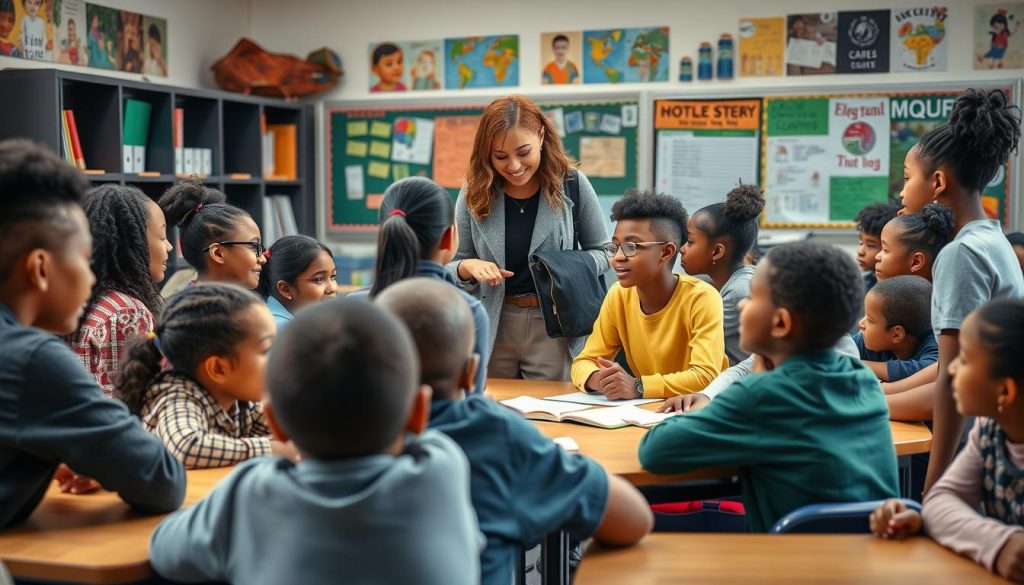
Cultural Responsiveness and Inclusion
Building authentic relationships across cultural differences requires developing teacher skills in cultural responsiveness. This means learning about and valuing the cultural backgrounds of your students, incorporating diverse perspectives into your curriculum, and creating a classroom environment where all students feel they belong.
Take time to learn about the communities your students come from. Invite cultural sharing in appropriate ways, while avoiding putting students in the position of being “representatives” of their culture. Show genuine interest in students’ cultural experiences and perspectives.
Supporting Students with Trauma
Many students come to school carrying the weight of traumatic experiences. For these students, building authentic relationships requires additional sensitivity and trauma-informed teacher skills. Creating predictable routines, offering choices, and responding with empathy to challenging behaviors helps create the safety these students need.
Remember that relationship-building may progress differently with students who have experienced trauma. They may test relationships repeatedly to see if you’re truly trustworthy, or they may be hesitant to form attachments. Patience, consistency, and unconditional positive regard are essential teacher skills when working with these students.
English Language Learners
Language differences can create barriers to authentic relationships, but they don’t have to. Developing teacher skills for connecting across language differences might include learning key phrases in students’ home languages, using visual supports and gestures, and creating opportunities for students to share their expertise.
Remember that even when verbal communication is limited, your nonverbal communication—facial expressions, tone of voice, patience, and genuine interest—communicates volumes about your desire to build authentic relationships.
Students with Special Needs
Building authentic relationships with students who have special needs may require adapting your approach to match their communication styles and preferences. Some students may need more structured interactions, visual supports, or alternative ways to express themselves.
Developing teacher skills in understanding different types of disabilities and their impact on social interaction helps you connect authentically with all students. Focus on students’ strengths and interests rather than deficits, and be willing to step outside your comfort zone to meet students where they are.
Develop Skills for Connecting with All Students
Our comprehensive course on building relationships provides strategies for connecting with diverse learners, including those with trauma backgrounds, language differences, and special needs.
Measuring the Impact of Authentic Relationships
How do you know if your efforts to build authentic relationships are making a difference? While relationships can’t be reduced to numbers, there are ways to observe and measure their impact on your classroom community.
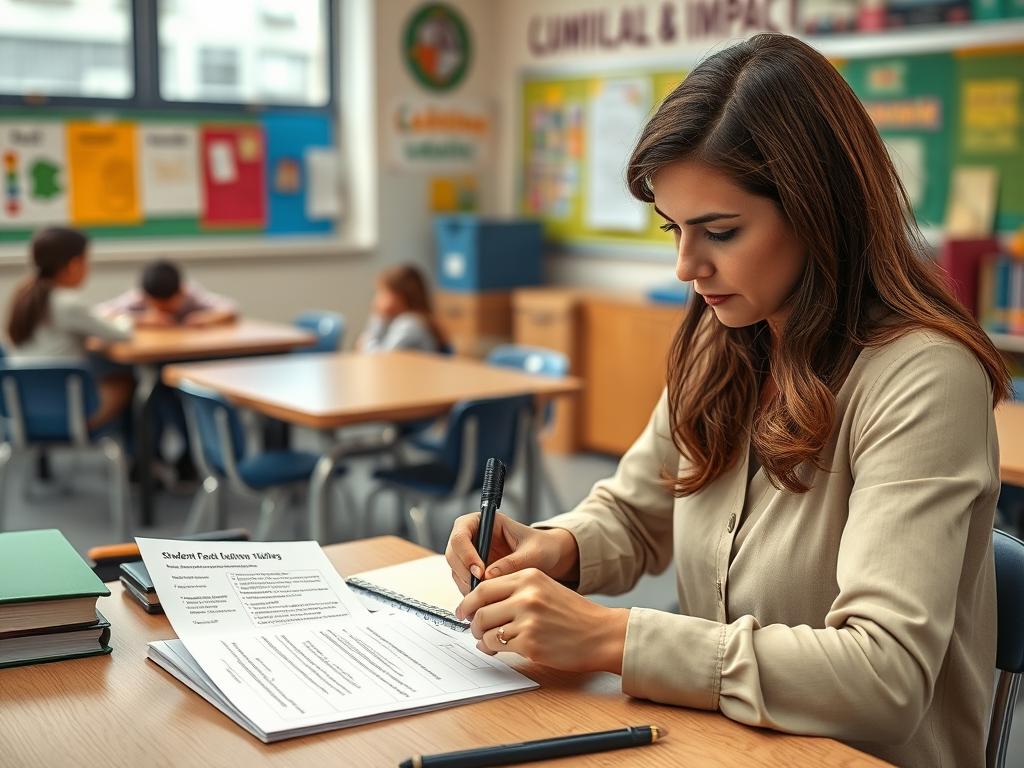
Observable Indicators
Developing teacher skills in observation helps you notice signs that authentic relationships are forming. Look for indicators such as:
- Increased student participation and willingness to take risks
- Students seeking you out to share news or ask questions
- Improved attendance and punctuality
- Fewer behavioral issues and conflicts
- More positive peer interactions
- Greater resilience when facing challenges
These observable changes provide evidence that your relationship-building efforts are having an impact, even if they’re not quantifiable in traditional ways.
Gathering Student Feedback
Students themselves are the best source of information about the quality of your relationships with them. Developing teacher skills in gathering and responding to feedback helps you continuously improve your connections.
Consider implementing regular, anonymous surveys with questions like:
- Do you feel your teacher knows you as a person?
- Do you feel comfortable asking questions in this class?
- Do you believe your teacher cares about your success?
- What could your teacher do to better understand and support you?
This feedback provides valuable insights into students’ perceptions of your relationships and offers direction for growth in your teacher skills.
Reflection and Self-Assessment
Regular reflection on your relationship-building efforts is a critical teacher skill. Consider keeping a journal where you note interactions with students, breakthroughs in relationships, and areas where you’d like to improve.
Ask yourself questions like:
- Which students do I connect with easily? Which are more challenging?
- Am I distributing my attention and positive interactions equitably?
- How do I respond when students are struggling emotionally?
- What teacher skills could I develop to strengthen my relationships?
This reflective practice helps you identify patterns, recognize growth, and set intentions for continued development of your relationship-building skills.
“The quality of our relationships with students is reflected in the quality of their engagement with learning. When authentic relationships flourish, so does education.”
Cultivating Authentic Relationships: A Lifelong Journey
Building authentic relationships with students isn’t a one-time achievement but an ongoing process that evolves throughout your teaching career. The teacher skills you develop in connecting with students will continue to grow and deepen with experience and intentional practice.
Remember that authentic relationships are built one interaction at a time. Each moment of genuine connection, each demonstration of care and interest, each instance of active listening contributes to the foundation of trust and mutual respect that defines authentic relationships.
As you continue to develop your teacher skills in relationship-building, be patient with yourself and with your students. Some connections will form quickly and easily; others will take time and persistence. What matters most is your genuine commitment to seeing, hearing, and valuing each student as an individual.
The authentic relationships you build with students may well be the most meaningful and lasting impact of your teaching career. Long after students have forgotten specific lessons or activities, they will remember how you made them feel—seen, valued, and capable of success.
Ready to Deepen Your Relationship-Building Skills?
Take the next step in developing the teacher skills that create transformative connections with students. Our professional development courses provide research-based strategies, practical tools, and supportive community.
Explore Professional Development Options
Or dive directly into our specialized course on building relationships:

